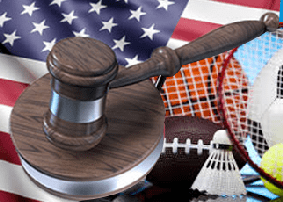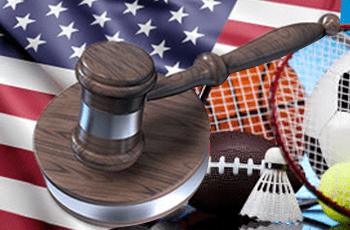The State of Play in Florida Two Years On From the Repeal of PASPA


The Professional and Amateur Sports Protection Act (PASPA) of 1992 was brought into effect to prohibit sports betting throughout the United States, with a couple of notable exceptions.
The following years brought persistent campaigning against the PASPA ruling, with New Jersey providing the loudest voices among the calls for the act’s repeal.
The opponents of the PASPA therefore celebrated the Supreme Court’s decision in May 2018, where the act’s virtually unilateral prohibition of sports betting was deemed unconstitutional.
The repeal of PASPA was expected to forever change the landscape of sports betting in the US, albeit not immediately.
Over two years on from the Supreme Court’s decision, it has become increasingly clear that things are going to move at a different pace in different states, and in some states nothing will change at all. Florida is one of those states that has so far introduced no new legislation in the light of PASPA’s dissolution.
A history of PASPA
PASPA was signed into law in October 1992 by President George H.W. Bush, with the act’s outright outlawing of sports betting intended to manage gambling practices in the US.
Not all forms of betting were covered by PASPA; Oregon, Delaware, and Montana were permitted to continue with their sports lotteries, while Nevada’s sports pools were also exempt. This effectively gave Nevada a monopoly on sports betting for live sporting events in the States, which helped to consolidate the state’s position as the premier gambling hub in the country.
That monopoly was not well received in other parts of the country, with New Jersey a vocal opponent to PASPA. While Nevada’s sports pool complemented the physical casinos of Las Vegas, New Jersey had no such option with their gambling metropolis of Atlantic City.
New Jersey brought several cases against PASPA through legal channels, with their ambitions finally coming to fruition in 2018.
In the 2018 case of Murphy v. National Collegiate Athletic Association, with the former being Governor Phil Murphy of New Jersey, the Supreme Court ruled that PASPA was in violation of the Tenth Amendment by robbing states of autonomous power. This decision gave each individual state the authority to make their own decision about the legality of sports betting.
Comparing Florida with the rest of the country
Delaware, West Virginia and, to the surprise of nobody, New Jersey were among the first states to legalise forms of sports betting following PASPA’s abolition. Other states, such as Utah and Idaho, are yet to take any steps on the path towards legalization.
These different stances towards sports betting reflects the different stances towards gambling in general, as legal betting in the USA varies greatly from state to state. Some states accept all of casinos, lotteries, fantasy sports, and sportsbooks, while some accept none. The vast majority are somewhere in the middle, permitting some activities but outlawing others.
Florida sits in that category, although towards the tougher end of the spectrum against gambling. Lotteries are accepted in the Sunshine State, but the repeal of PASPA has not yet affected Florida’s position on sports betting.
The Seminole Tribe is the state’s foremost gambling provider and would therefore have control over any attempts to introduce sportsbooks in retail locations. The end of PASPA also opens the doors for states to legalize online sports betting, but this is something else that has seen no change in Florida.
That is not due to a lack of trying, with State Senator Jeff Brandes filing a trio of bills in November 2019 and suggesting sportsbooks would generate revenue for Florida to use on other causes. These bills would have amended legislation to allow wagers to be accepted on sports events in some capacity, with mobile sports betting also becoming permissible in Florida. However, the bills were all rejected in March 2020 when brought before the Committee for Innovation, Industry, and Technology.
It is unlikely that these will be the last attempts to pass through legislation relaxing the rules on sports betting in Florida, but this highlights that the repeal of PASPA didn’t necessarily mean that every state in the country will end up embracing sportsbooks.
States now have the freedom to choose their own legislation and, while many states opted for relaxed rules, Florida has so far used that freedom to keep things as they were.

